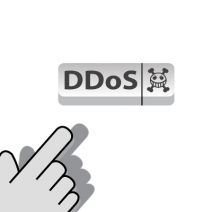Ferrum Technology Services Blog
 What if you can have one employee who’s dedicated to receiving calls and answering tech support questions from the rest of your staff? Essentially, someone having this role would be like a help desk for your business. If you don’t think you can afford filling in a seat like this, consider how much time/money a move like this would save you if employees didn’t have to waste time seeking out needed information.
What if you can have one employee who’s dedicated to receiving calls and answering tech support questions from the rest of your staff? Essentially, someone having this role would be like a help desk for your business. If you don’t think you can afford filling in a seat like this, consider how much time/money a move like this would save you if employees didn’t have to waste time seeking out needed information.
 One nail-biting aspect about email is that you’re never sure if the person you sent your message to has actually opened it and read it. This is especially the case if it’s an important message. When you don’t hear back as quickly as you’d like, you then begin to doubt if the message was ever even received, which could lead to unnecessarily contacting them by different means. This only looks desperate. To calm your nerves, there’s an extension for Chrome that tracks details like this for Gmail.
One nail-biting aspect about email is that you’re never sure if the person you sent your message to has actually opened it and read it. This is especially the case if it’s an important message. When you don’t hear back as quickly as you’d like, you then begin to doubt if the message was ever even received, which could lead to unnecessarily contacting them by different means. This only looks desperate. To calm your nerves, there’s an extension for Chrome that tracks details like this for Gmail.
 Fun is often misconstrued in the workplace and identified as being unproductive, or even lazy at times. However, more businesses than ever before are embracing the power of fun and letting the creative juices flow. Using game-like elements to achieve your business’s goals, or to improve operations, is called gamification, and you can take advantage of it.
Fun is often misconstrued in the workplace and identified as being unproductive, or even lazy at times. However, more businesses than ever before are embracing the power of fun and letting the creative juices flow. Using game-like elements to achieve your business’s goals, or to improve operations, is called gamification, and you can take advantage of it.
 In July, IBM announced the development of a computer chip that’s four times more powerful than anything currently on the market. As cool as this news is, what makes it extra exciting is the fact that it’s an ultra-dense chip. Developments like this will be the driving force behind the advancement of computing, well into the next decade and beyond.
In July, IBM announced the development of a computer chip that’s four times more powerful than anything currently on the market. As cool as this news is, what makes it extra exciting is the fact that it’s an ultra-dense chip. Developments like this will be the driving force behind the advancement of computing, well into the next decade and beyond.
 Who is Cortana? Windows 10 users all over the world are finding this out as they turn to Microsoft’s newest personal assistant with their important questions. One thing we know for sure about Cortana is that she can do a lot more than just search Bing. Here are six useful things you can have Cortana do for you.
Who is Cortana? Windows 10 users all over the world are finding this out as they turn to Microsoft’s newest personal assistant with their important questions. One thing we know for sure about Cortana is that she can do a lot more than just search Bing. Here are six useful things you can have Cortana do for you.
 Do you know anyone affected by recent ransomware activity? The tragedy of Cryptolocker/Cryptowall, where files are locked down and returned in exchange for a ransom fee, might still be fresh in your minds. Well, the FBI warns that the end of cyber extortion is still far off, and that the next hacking technique that will be used is likely the DDoS attack.
Do you know anyone affected by recent ransomware activity? The tragedy of Cryptolocker/Cryptowall, where files are locked down and returned in exchange for a ransom fee, might still be fresh in your minds. Well, the FBI warns that the end of cyber extortion is still far off, and that the next hacking technique that will be used is likely the DDoS attack.
 One of the greatest parts of the Internet is how easy it is to search for new information on a particular subject you’re unfamiliar with. Usually this is done by utilizing a search engine like Google, but the search giant’s web browser, Google Chrome, makes this way easier by providing built-in search functions into the browser, including a super-simple drag and drop search function.
One of the greatest parts of the Internet is how easy it is to search for new information on a particular subject you’re unfamiliar with. Usually this is done by utilizing a search engine like Google, but the search giant’s web browser, Google Chrome, makes this way easier by providing built-in search functions into the browser, including a super-simple drag and drop search function.
 Following in the iPhone’s footsteps, it’s been confirmed that Samsung mobile devices will no longer feature the removable battery and MicroSD card slots that differentiated them from its competition. While it’s not clear if this change will affect sales figures, it will probably be a while before Samsung users understand that their phones no longer feature removable batteries, which could lead to some potentially messy lawsuits.
Following in the iPhone’s footsteps, it’s been confirmed that Samsung mobile devices will no longer feature the removable battery and MicroSD card slots that differentiated them from its competition. While it’s not clear if this change will affect sales figures, it will probably be a while before Samsung users understand that their phones no longer feature removable batteries, which could lead to some potentially messy lawsuits.
 Cloud computing has reached a point where the majority of businesses are utilizing the technology to some extent. According to a 2014 survey, about 70 percent of enterprises either have infrastructure or applications in the cloud. As more companies migrate more of their operations to the cloud, we’re getting more questions about what it takes to make such a transition possible.
Cloud computing has reached a point where the majority of businesses are utilizing the technology to some extent. According to a 2014 survey, about 70 percent of enterprises either have infrastructure or applications in the cloud. As more companies migrate more of their operations to the cloud, we’re getting more questions about what it takes to make such a transition possible.
 With hackers having their way with seemingly-impregnable organizations (like the IRS and Sony Entertainment), companies are investing more into network security. Thankfully, a simple solution like multi-factor authentication presents an easy (and often free) way to dramatically improve security. More applications are making multi-factor authentication available to its users, like Office 365.
With hackers having their way with seemingly-impregnable organizations (like the IRS and Sony Entertainment), companies are investing more into network security. Thankfully, a simple solution like multi-factor authentication presents an easy (and often free) way to dramatically improve security. More applications are making multi-factor authentication available to its users, like Office 365.
 Hackers are always looking to take advantage of the latest technology in new and unexpected ways. The Internet of Things is making their job way easier by providing a plethora of Internet-connected devices. Among these devices is the automobile entertainment system, and, you guessed it; hackers can take control of that, too, if given the right circumstances.
Hackers are always looking to take advantage of the latest technology in new and unexpected ways. The Internet of Things is making their job way easier by providing a plethora of Internet-connected devices. Among these devices is the automobile entertainment system, and, you guessed it; hackers can take control of that, too, if given the right circumstances.
 When it comes to your online presence, few tools are more valuable than your organization’s website. However, in order to have a website, you first need a domain name. There are countless domains available, but did you know that the meaning of these names has changed significantly over the past several years?
When it comes to your online presence, few tools are more valuable than your organization’s website. However, in order to have a website, you first need a domain name. There are countless domains available, but did you know that the meaning of these names has changed significantly over the past several years?
 It turns out that the Internet isn’t as anonymous as it seems. This is a hard lesson learned by more than 37 million users of Ashley Madison, a website dedicated to cheating on one’s spouse. In July, the site was hacked by the hacker group, “The Impact Team,” and they’re currently threatening to expose the cheaters by going public with the database. In this particular case, Ashley Madison users should have known better--on two levels.
It turns out that the Internet isn’t as anonymous as it seems. This is a hard lesson learned by more than 37 million users of Ashley Madison, a website dedicated to cheating on one’s spouse. In July, the site was hacked by the hacker group, “The Impact Team,” and they’re currently threatening to expose the cheaters by going public with the database. In this particular case, Ashley Madison users should have known better--on two levels.
 With all of the inappropriate content festering in the gutters of the Internet, you need a solution that will protect you, your family, and your office. Implementing a content filtering solution is a great start, but it’s not going to shield you 100 percent from what’s out there. In addition to having a content filter, you need to take an active role in monitoring who’s doing what on the Internet.
With all of the inappropriate content festering in the gutters of the Internet, you need a solution that will protect you, your family, and your office. Implementing a content filtering solution is a great start, but it’s not going to shield you 100 percent from what’s out there. In addition to having a content filter, you need to take an active role in monitoring who’s doing what on the Internet.
 Most people rely heavily on their smartphones. If you’ve been out in public recently, you know the behavior we’re talking about. Some people constantly have their noses in their phone. Many sources are beginning to see this as a major cultural problem, but is this because there has been no dedicated strategy to move smartphone users from constant entertainment and current events consumption? Ironically, to move society forward using these “essential” information delivery systems, we may just need more technology, not less.
Most people rely heavily on their smartphones. If you’ve been out in public recently, you know the behavior we’re talking about. Some people constantly have their noses in their phone. Many sources are beginning to see this as a major cultural problem, but is this because there has been no dedicated strategy to move smartphone users from constant entertainment and current events consumption? Ironically, to move society forward using these “essential” information delivery systems, we may just need more technology, not less.
 There’s no question that mobile devices have changed the way society works on a fundamental level. It’s hard to imagine even leaving the house without your trusty smartphone by your side. The iPhone was once advertised as “life in your pocket,” and this phrase has proven to be entirely too true. Eight years following the introduction of these devices, businesses have grown reliant on this type of mobile technology to stay relevant in their chosen industry.
There’s no question that mobile devices have changed the way society works on a fundamental level. It’s hard to imagine even leaving the house without your trusty smartphone by your side. The iPhone was once advertised as “life in your pocket,” and this phrase has proven to be entirely too true. Eight years following the introduction of these devices, businesses have grown reliant on this type of mobile technology to stay relevant in their chosen industry.




